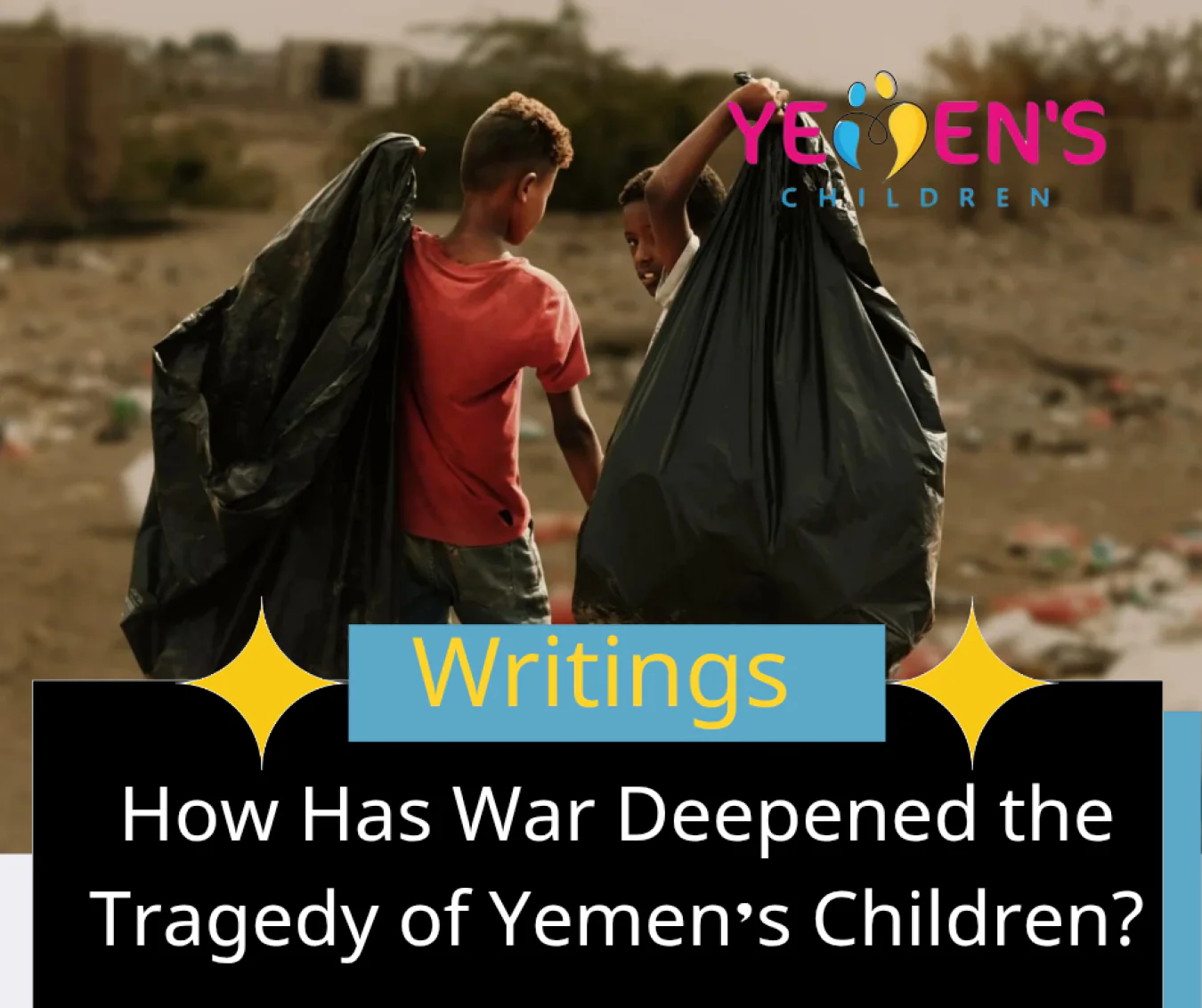How Has War Deepened the Tragedy of Yemen’s Children?

Writings: Amat AL-Rahman Alafory
In a country exhausted by war and weighed down by a senseless conflict, childhood seems to have no place for mercy or protection—neither from the warring parties nor from those who champion humanitarian values from air-conditioned offices in the capitals of global decision-making. Since the outbreak of war in 2015, Yemen has endured one of the world’s worst humanitarian crises, and its greatest victims are the children—born to dream, yet forced by grim reality to grow up too soon in a homeland where hope is drained as swiftly as their young lives.
In areas under Houthi control, childhood is no longer a phase of innocence but a direct route to the frontlines. Children are forcibly recruited and thrust into battles they cannot comprehend, under the guise of “summer centers” that have become factories for brainwashing and ideological indoctrination. There, children do not learn the alphabet of life, but the vocabulary of death. They know nothing of the future—except that another battlefield awaits.
In government-held areas, the situation may be less bloody, but it is no less cruel. Public schools are plagued by chronic strikes due to unpaid salaries and a crumbling education system. Children are forced to abandon classrooms for menial survival—begging in the streets, scavenging for plastic, or selling goods on sidewalks—all under the near-total neglect of local and international authorities.
Amidst this humanitarian catastrophe, pressing questions arise about the role of international organizations, especially those that claim to protect children. Where is UNICEF? What tangible role has Save the Children played, given its frequent reports condemning the Yemeni government and the Arab Coalition, while either deliberately or negligently overlooking the blatant violations against children committed by the Houthis?
What is most troubling—and frankly bitter—is that Save the Children has not only turned a blind eye to Houthi crimes, but has also offered them humanitarian services and logistical support. Its rights-based operations have been aligned with politically biased positions, largely influenced by Oxfam, itself accused of politicizing humanitarian work. Ironically, this same organization, once viewed by the Houthis as a temporary ally, was later betrayed. Staff members were kidnapped, some tortured to death, and its assets in Sana’a were seized—valued at approximately $4 million.
The case of Save the Children is not an isolated incident, but rather a reflection of a consistent pattern. The Houthis have repeatedly employed this strategy with all Yemeni political forces they engaged—only to turn against them once they were no longer useful. The same approach applies to organizations and even governments that thought appeasement or support could win the group’s favor.
The stark truth is that the Houthis do not see others as partners, but as temporary tools in their existential battle—rewarding loyalty with betrayal, support with exclusion, and generosity with aggression. Anyone who thinks they can escape this fate is deluding themselves.
In conclusion, speaking of childhood in Yemen cannot be fair or complete without holding international organizations truly accountable—not only for their inaction but, in some cases, for becoming instruments of propaganda that whitewash the crimes of the oppressor. What is happening to Yemen’s children is a dual crime—committed by weapons on one side, and silence on the other.
Between the two... childhood is being slaughtered.
Opinion articles do not necessarily reflect the views or positions of the platform.








